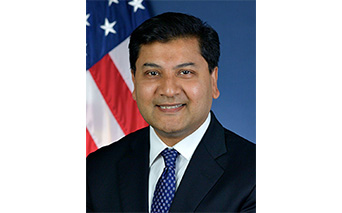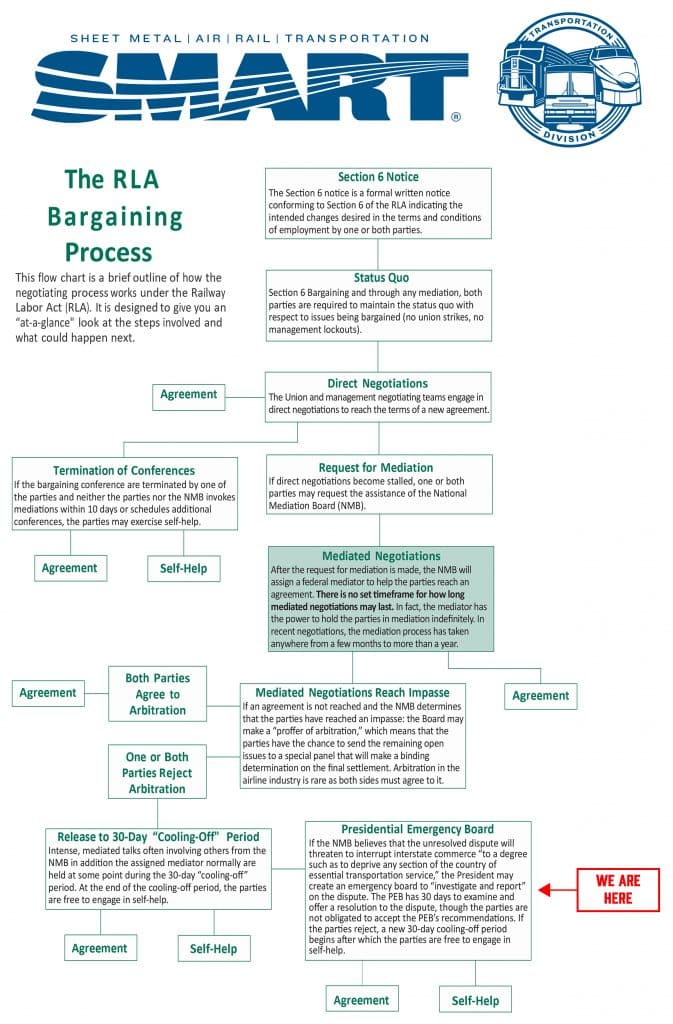U.S. Rep Peter DeFazio (D-Ore.) testifies before the House Rail and Pipelines Subcommittee on May 12.
Following up a hearing in late April on freight rail problems caused by Precision Scheduled Railroading (PSR), members of the Surface Transportation Board appeared before the U.S. House Rail and Pipelines Subcommittee on May 12 to further discuss steps to be taken to heal the nation’s supply chain.
“We are at a point of crisis, and we have to deal with that crisis meaningfully,” U.S. House Transportation and Infrastructure Chairman Peter DeFazio (D-Ore.) said. “Freight service in the United States in America, we used to have the best freight rail in the world, is abysmal.
“The evil ghost of Hunter Harrison lives on. The legacy of this man is disgusting, what he did he has addicted the CEOs of the rail industry to watching the ticker on Wall Street and using their resources to benefit their shareholders and not run railroads like railroads.”
DeFazio mentioned an unlikely alliance — shippers, energy and chemical companies, oil companies, big agriculture and rail labor — coalescing as Class Is’ service-averse PSR scheme continues to rake in record profits and benefit shareholders and CEOs.
“We’ve got to act more decisively and more quickly,” DeFazio told the STB members. “We’re going downhill here really quickly. You’re not there to protect the bottom line of these railroads and the CEOs’ bonuses. You’re not there even for the shippers’ bottom line. But are there to make this system work better, keep costs lower and be competitive.
“I want freight railroads to be successful … but that success should be defined by the amount of freight they move across the nation, the amount of greenhouse gas they prevent and the safety of their employees and the communities they traverse. Stock buybacks, dividends can’t be the measure of success for freight rail in this country.”
Surface Transportation Board Chairman Martin Oberman was appointed by President Biden in January 2021 after 29 percent workforce cuts that began before the COVID pandemic’s start — a total of more than 45,000 employees — these cuts can be linked to the current deteriorated service.
“The railroads could not possibly have screwed up this stuff anymore than they are doing on their own. There’s nothing we could do to make it worse right now. It is in terrible shape as has been indicated by members of the committee and at our hearing,” Oberman said. “They’ve cut labor to below the bone, really. They have thousands of locomotives that they’ve mothballed … That’s the big picture. That’s the overview that concerns me most. In order to make up for their shortage of labor, they’re overworking and abusing the workforces they have. Long-term employees are literally leaving. So you’re not only [dealing with] a shortage of workers but you’re losing a tremendous amount of institutional knowledge.
“Rail labor reports particular difficulty directly caused by increased job uncertainty, worsening working conditions and insufficient incentive,” he said. “I am not optimistic about significant improvement in service in the near term.”
The STB’s April 26 hearing resulted in a unanimous rulemaking mandate made days later that Class I carriers be required to detail on-time performance for first- and last-mile service, submit recovery plans and provide frequent updates to the board. A notice of proposed rulemaking also would provide emergency relief for rail customers in urgent need of rail service.
U.S. Rep. Steve Cohen, a Tennessee Democrat, brought up the “Hi-Viz” attendance policy that BNSF enacted in February, noting a letter he received from a 13-year retired veteran engineer that talked about the new challenges the punitive points-based attendance policy had given him in facing his medical challenges.
“Demands on employees have only increased,” Cohen said. “These unreasonable expectations are driving people out of the industry. They’re doing the minimum, which the federal government requires on FMLA and some other things, but they ought to be doing more than the minimum to bolster the workforce, care for their employees and bolster the rail industry in general.”
The low workforce levels are making it harder for service to recover, these “irresponsible” business cuts and layoff decisions by the railroads have also made people not want to come back, Oberman said.
“What could not be more clear is that the railroads do not have significant redundancy. It’s quite clear to me that they don’t have a cushion. As I have said many times, you wouldn ‘t send a football team out on the field without a backup quarterback. But what the railroads have done is just that,” he said. “They have set the rail crew levels at levels when they have no backup. So when there was COVID, when there’s a vortex, when there’s any disruption of workers getting to the job, the trains stopped running.
“Remember, when you lay off an experienced engineer or conductor and there’s no assurance they’ll come back and many of them did not — they went into other industries. To replace that person under FRA restrictions and just general common sense requires six months of training.”
U.S. Rep. Troy Nehls (R-Texas), railing against inflation and union density in the rail industry, himself produced some inflated and inaccurate estimate of the average Class I rail employee’s salary as being $137,000.
“At the hearing we had two weeks ago, the railroads came in and proudly proclaimed that they were trying to hire new conductors at $52,000 a year, not $137,000, and when I asked them how they were going to compete with Wal-Mart hiring truck drivers at $110,000, they didn’t have an answer,” Oberman countered.
Nehls’ inaccurate statement also was later corrected by Rep. Stephen Lynch of Massachusetts, who also noted that rail workers were not rewarded for working through the pandemic and that nation rail contract negotiation have dragged on for more than two years.
“You can see the attention that the railroads have given to labor when you look at how much they’ve cut the labor force and how much they’re not respecting and looking out for their best interest, you can see that. They’re giving more money to their shareholders. There hasn’t been one major bonus or pay raise in those couple years that they’ve been working us out of COVID. No hint towards that,” STB member Robert Primus said.
STB Member Karen Hedlund also referred to the longer trains PSR uses that frequently dwarf the sidings on the lines, causing congestion and obstructing passenger rail’s on-time service and suspects that STB will need to address it.
“There’s one long-distance line that was above 80 percent,” she said. “Some of the shorter lines perform over 80 percent, but the long-distance lines do not perform well. When there’s a three-mile-long train in front of a little Amtrak train, the three-mile-long train may not be able to get out of the way for many, many miles.”

